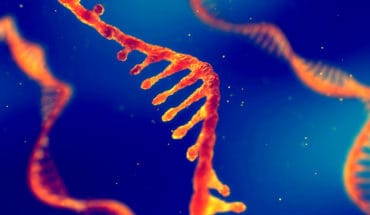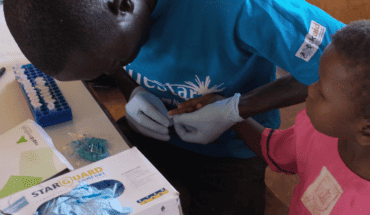Scientists have found another crucial piece of the puzzle in how the microbiome – the ecosystem of bacteria living in our digestive tracts – helps to shape our health. According to a study published in the journal, Cell Reports, chemical signatures from gut bacteria which show up in urine can be used to predict how the body will respond to a ‘junk’ diet. This discovery could lead to personalised diets for patients based on the makeup of their gut flora.
The group, led by scientists at Imperial College London and INSERM UMRS 1138 in Paris, tested the urine of mice for a number of these microbial compounds, finding that certain key chemical signatures could accurately predict how the animals would respond to a high-fat diet before they received it.
High-fat diets are a major driver of obesity and related health conditions, such as diabetes and cardiovascular disease. However, evidence from previous studies suggests different people eating the same high-fat diet may have different outcomes, making it hard to define a one-size-fits-all ‘healthy diet’.
Previous research has shown that the hundreds of species of bacteria and other microbes which inhabit our gut work with our own cells to carry out a number of roles, and that this microbial garden can be shaped by what we eat or what medicines we take, such as antibiotics.
Researchers used genetically similar mice to highlight the role that gut bacteria played in how the body responds to changes in diet and the impacts on health.
“We know that our environment and genetics can influence our risk of obesity and disease, but the effects of these communities of bacteria living inside us are less well understood,” said Dr Marc-Emmanuel Dumas, from the Department of Surgery & Cancer at Imperial, who led the research. “By using a group of mice with the same genetic makeup, we were able to zoom in on the variability in animals switched to a high-fat diet.”
Before animals switched diets, their urine was screened for compounds produced by their gut bacteria using magnetic resonance spectroscopy, giving the mice a profile of chemical signatures generated by metabolites from their microbiomes.
The team found that once the mice were switched to the same high-fat diet they had a range of outcomes, with some animals gaining more weight than others or becoming less tolerant to glucose – one of the early warning signs of diabetes.
Analysis revealed that key chemical signatures in their urine were predictive of some outcomes, such as changes in behaviour, weight gain and tolerance to glucose. One compound in particular, trimethylamine-N-oxide (TMAO), was shown to be predictive of glucose tolerance.
Professor Jeremy Nicholson, Head of the Department of Surgery & Cancer at Imperial explained: “When the microbiome develops in early life, we start off with very few bugs, acquiring more bacteria from our environment as we develop. This means that small differences in the local environment can result in a great diversity in terms of the microbiome.”
“This study is another fascinating example of the power of the microbiome to influence the host with respect to major health risks,” said Professor Nicholson. “It shows that value of a diet is determined not only by your genes, but also the genes of your gut microbes. This work has implications in lots of different areas, which is why it’s so exciting.”
Senior investigator on the study, Dr Dominique Gauguier, from INSERM-Paris and a visiting professor at Imperial, added: “We tend to believe that obesity is caused by bad genes or by bad genes interacting with bad environment. Our findings indicate that an organism’s gut microbiome can drive the adaptation to dietary challenges in the absence of genetic variation. They underline the need for deeper physiological and molecular phenotyping of individuals in large scale genetic studies.”
The findings will be explored further as part of an ongoing large clinical trial of 2,000 patients, where details of their lifestyle, diet, medication and other factors, as well as their microbiomes, are being characterised. Pulling together all of these data, and building on previous findings, they will be able to reveal how people react to different diets, and how their microbiomes influence the outcome.
According to the researchers, the hope is that in future, a patient’s profile could be generated from urine and blood samples and used to predict which diet they will respond to best.
“Our findings reveal that measuring metabolites in urine before the diet switch, we can predict which animals will get fat and become intolerant to glucose and which ones won’t,” added Dr Dumas. “These findings open up really strong perspectives into designing personalised diets and harnessing our gut bacteria to promote health.”
- No Mind Left Behind: Support the Carers - 4th May 2025
- Climate change causes longer pollen seasons in capital cities - 4th May 2025
- The Hidden Toll of Caregiving on Joint Health and Well-being - 3rd May 2025







Does it not also make the overuse of antibiotics by doctors, dentists and agricultural scientists criminal?
At what point do science and medicine act with caution, recognising that it may know more but it still knows very little?
The blithe disregard if not disdain for bodily function and wisdom and the cavalier manipulation of natural bodily processes is dangerous hubris and it is the people who suffer, particularly our children.